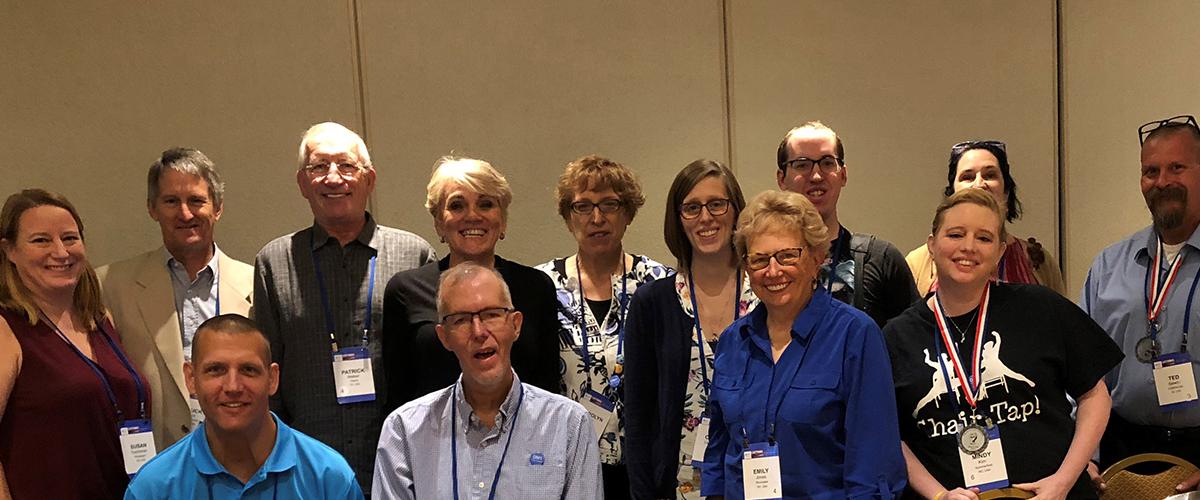In partnership, the Myotonic Dystrophy Foundation US and the Myotonic Dystrophy Foundation UK made the following grants in 2018:
“Myotonic Dystrophy Clinical Research Network (DMCRN) Site Grants: Multicenter Study of Natural History and Genetic Modifiers in Myotonic Dystrophy Type 1”
PI: Nicholas Johnson, MD
Virginia Commonwealth University, Virginia, US
The DMCRN will undertake an ambitious 8-site study of disease progression and genetic modifiers of DM1. The proposed study will use unrestrictive entry criteria, ensuring that any subject with DM1 is included. To meet the increased recruitment demands, the study involves new sites (University of Utah, Salt Lake City and Houston Methodist Neuroscience Institute, Houston, TX) and concise study visits (2-3 hours) that do not include invasive procedures. It is expected that this will drive strong enrollment and allow participation from segments of the community who previously may have felt disenfranchised. As compared to the current study, it examines a larger number of patients (n = 500) over a longer time period (2 years). The outcome measures are a subset of those used in previous studies, selecting those with best performance characteristics. Sites and partners include:
Tetsuo Ashizawa, MD, Houston Methodist Neuroscience Institute, US
John Day, MD, PhD, Stanford University, US
Nicholas Johnson, MD, University of Utah, US
John Kissel, MD, Ohio State University, US
Jeffrey Statland, MD, University of Kansas Medical Center, US
S.H. Subramony, MD, University of Florida, US
Laurie Gutmann, MD, University of Iowa, US
“Development of a Mouse Drug Testing Facility for Myotonic Dystrophy”
PI: Laurent Bogdanik, PhD
The Jackson Laboratory, Bar Harbor, Maine, US
The reliable evaluation of drug candidates upstream of clinical trials relies in most cases on good mouse models that replicate key features of the disease, but also on reliable experimental assays. A robust infrastructure to produce, maintain, distribute and study mouse colonies, connect with drug developers, and prepare and execute in vivo pharmacology studies in a rigorous laboratory environment are also desirable. The goal of Dr. Bogdanik’s project is to make available to the DM drug development community, in a centralized location, the HSA-LR model and future DM mouse models, along with the knowledge resources and the drug testing services that will support the development of tomorrow’s cures.
“Request for Support for Publication and Open Access Fee for a Peer-Reviewed Myotonic Dystrophy Therapy Review Paper”
PI: Ruben Artero, PhD
University of Valencia, Spain
The depth and quality of DM publications, from basic research to review papers, is an essential component to attracting more research and industry engagement to the field. DM publications in high impact journals and in journals with a broad readership, is one of the most effective ways to highlight the disease and unmet need. It is also an effective method to attract a more diverse research base. Dr. Ruben Artero, a well-respected researcher in the myotonic dystrophy field from the University of Valencia, Spain, received a one-time grant to support the publication and open access fees for a review article entitled “Oligonucleotide-based therapies for Myotonic Dystrophy”. The article will be published in Drug Discovery Today.
“Meeting Grant Support for 9th International Conference on Unstable Microsatellites and Human Disease”
PI: Laura Ranum, PhD
University of Florida Continuing Medical Education, US
9th International Conference on Unstable Microsatellites and Human Disease.

